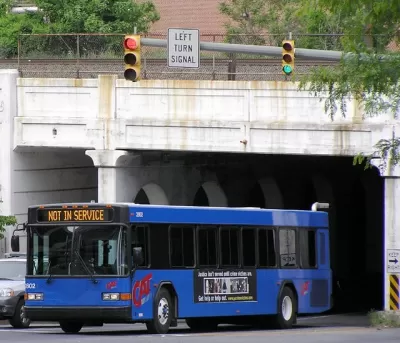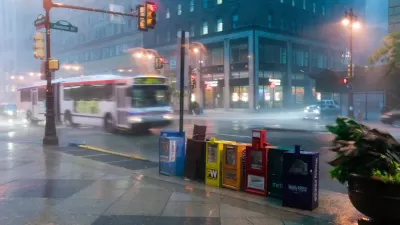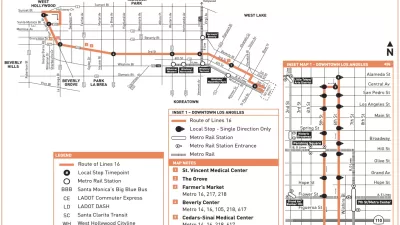With big cuts coming to Capital Area Transit bus service in Cumberland County, Pennsylvania, businesses are looking for new ways to get workers to their jobs.

Cumberland County, Pennsylvania is facing the prospect of reduced bus service. "The county is served by Capital Area Transit (CAT), which is facing a 24% reduction in service. A consultant is being brought on to undertake a massive overhaul of CAT’s bus routes and system," Bennett Leckrone reports for The Patriot-News.
The changes at CAT expand beyond the service reductions. CAT just finished updating its payment system, and the agency has plans to update their website and mobile app. All that work must be accomplished on a constrained budget. CAT officials hope a redesign will realize some efficiencies, and reduce deadheading (i.e., non revenue bus travel time) to cut cost. Even with those benefits, officials are predicting some loss of service. The CAT may raise fares, but this would not be likely to provide a total solution to the budget issue, as fares only cover part of the costs of the service.
Businesses in the CAT service area have voiced concerns about the impacts of the reductions on the workforce, many of whom depend on CAT to commute. "Crystal A. Quintin, a regional director at the Geisinger Health Foundation, said it’s not just the employees that need to get to a business, but the customers as well," Leckrone reports. Less convenient transit can lead to suppressed demand meaning that some will simply not travel to the service if transit is not convenient or affordable, and fewer trips could mean fewer customers.
FULL STORY: CAT bus service cuts mean businesses are looking for other ways to get employees to work

Maui's Vacation Rental Debate Turns Ugly
Verbal attacks, misinformation campaigns and fistfights plague a high-stakes debate to convert thousands of vacation rentals into long-term housing.

Planetizen Federal Action Tracker
A weekly monitor of how Trump’s orders and actions are impacting planners and planning in America.

In Urban Planning, AI Prompting Could be the New Design Thinking
Creativity has long been key to great urban design. What if we see AI as our new creative partner?

King County Supportive Housing Program Offers Hope for Unhoused Residents
The county is taking a ‘Housing First’ approach that prioritizes getting people into housing, then offering wraparound supportive services.

Researchers Use AI to Get Clearer Picture of US Housing
Analysts are using artificial intelligence to supercharge their research by allowing them to comb through data faster. Though these AI tools can be error prone, they save time and housing researchers are optimistic about the future.

Making Shared Micromobility More Inclusive
Cities and shared mobility system operators can do more to include people with disabilities in planning and operations, per a new report.
Urban Design for Planners 1: Software Tools
This six-course series explores essential urban design concepts using open source software and equips planners with the tools they need to participate fully in the urban design process.
Planning for Universal Design
Learn the tools for implementing Universal Design in planning regulations.
planning NEXT
Appalachian Highlands Housing Partners
Mpact (founded as Rail~Volution)
City of Camden Redevelopment Agency
City of Astoria
City of Portland
City of Laramie





























